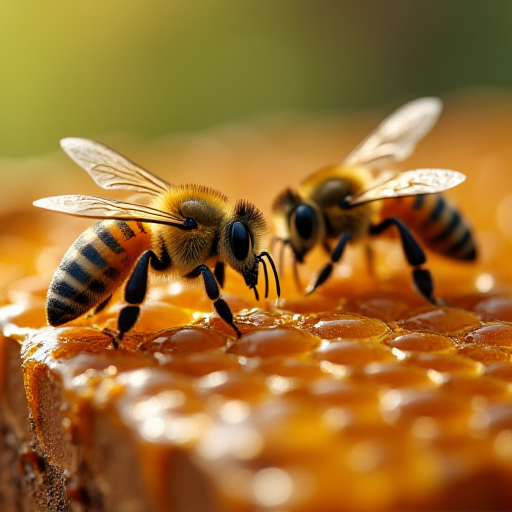
Why Do Bees Make Honey?
Bees, often seen as nature's industrious workers, play a crucial role in our ecosystem. Among their many contributions, honey production stands out not only for its economic and nutritional value but also for its sheer biological marvel. But why do bees make honey? The answer lies in their survival strategy, social structure, and ecological role.
The Biology of Honey Production
The Worker Bee's Role
The honey-making process involves the diligent work of female worker bees. These bees collect nectar from flowering plants using their long, tube-like tongues. They store this nectar in their "honey stomach," a special organ separate from their digestive stomach. This is where the initial transformation begins.
Enzymatic Transformation
Once the nectar is collected, bees return to their hive and pass it to other worker bees. This is done through a process called regurgitation. During this exchange, enzymes like invertase are added to the nectar. These enzymes break down complex sugars in the nectar into simpler sugars, glucose and fructose, which are more stable.
Evaporation Process
The nectar is then deposited into the honeycomb cells. Worker bees fan their wings vigorously, creating airflow to evaporate water content from the nectar. This evaporation process thickens the nectar, turning it into honey, which is less prone to spoilage due to its low moisture content.
Sealing the Honey
Once the honey reaches the right consistency, bees seal the honeycomb cells with a thin layer of beeswax produced by the worker bees themselves. This sealing preserves the honey, protecting it from air and moisture.
The Purpose of Honey Production
Food Storage
The primary reason bees make honey is to store food for the hive. Honey serves as a crucial food source, especially during the winter months when flowers are scarce, and nectar is unavailable. The energy-dense honey provides nutrition and sustenance to the bees, ensuring the survival of the colony.
Energy Source
Honey is rich in carbohydrates, which are vital for the energy-intensive activities of bees, such as flying and temperature regulation of the hive. A bee's ability to maintain constant hive temperature is essential for the survival and development of larvae.
Colony Growth and Reproduction
A well-fed colony is a thriving colony. Honey supplies the necessary nutrients for the queen bee to lay eggs and for the larvae to grow. The availability of honey directly influences the health and expansion of the bee population within the hive.
Honey's Ecological Importance
Pollination
While honey production is primarily for the bees' benefit, it indirectly supports ecological balance and biodiversity. As bees collect nectar, they inadvertently transfer pollen from one flower to another, facilitating the process of pollination. This is crucial for plant reproduction and the production of fruits and seeds, which in turn supports diverse wildlife.
Biodiversity Maintenance
Bees' pollination activities contribute to the maintenance of biodiversity. A wide variety of plants, including crops and wildflowers, depend on bees for reproduction. This biodiversity supports ecosystems and provides habitat and food for numerous other species.
Honey's Role in Human Society
Nutritional Value
Humans have harvested honey for thousands of years, valuing it for its sweetness, flavor, and nutritional properties. It contains antioxidants, vitamins, and minerals that contribute to its health benefits.
Economic Importance
The beekeeping industry is significant for many economies around the world. Beyond honey production, beeswax, royal jelly, and propolis are valuable by-products. Additionally, the pollination services provided by bees are critical for agriculture, enhancing crop yields and quality.
Conclusion
Bees make honey as a fundamental survival strategy, ensuring that they have a reliable food source during times when nectar is not readily available. This intricate process, driven by the needs of the colony, not only sustains the bees but also supports ecological balance through pollination. For humans, honey is a treasured resource, both nutritionally and economically. Understanding why bees make honey highlights their indispensable role in nature and underscores the importance of protecting these vital pollinators.
